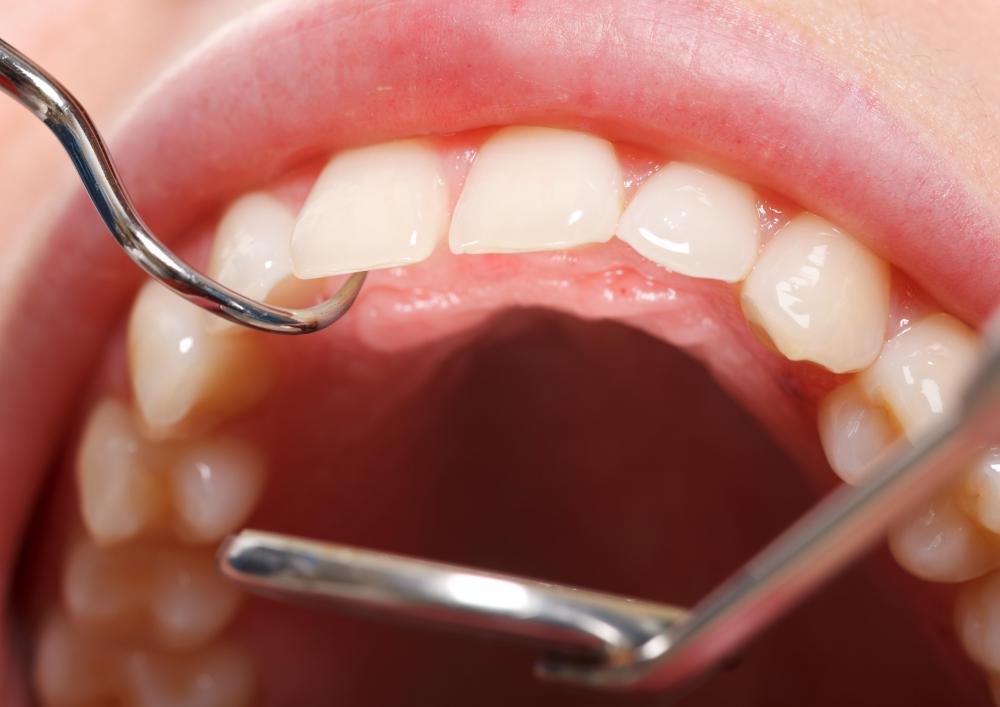At WiseGEEK, we're committed to delivering accurate, trustworthy information. Our expert-authored content is rigorously fact-checked and sourced from credible authorities. Discover how we uphold the highest standards in providing you with reliable knowledge.
What are the Best Ways to Deal with Anxiety in Children?
The best way to deal with anxiety in children depends on whether or not the child is displaying normal childhood fears or a more severe condition such as an anxiety disorder. An adult can typically handle childhood fears with patience and understanding. Talking to the the child about his or her anxiety and utilizing age-appropriate tools like books or role-playing can also be beneficial. A child with an anxiety disorder could be a candidate for anxiety medication or therapy from a health care professional. If a parent feels unsure on how to deal with a child's anxiety and fears, consulting a pediatrician is a place to begin.
The first step in handling anxiety in children is to determine whether the child is experiencing normal childhood fears or something more serious. A few common forms of anxiety in children are fear of the dark, concerns over going to school, fear of strangers, or separation from parents. A boy or girl with extreme and reoccurring anxiety is, however, likely to be suffering from an anxiety disorder, particularly if the symptoms include less common indications like panic attacks, obsessions, or compulsions — i.e, uncontrollable urges to perform repetitive or irrational actions.

A parent can choose to handle normal childhood fears by remaining calm and encouraging the child to verbalize his or her feelings. Even if the fear is irrational, it is real to the child, and the child's caregiver should meet these fears with understanding and patience. A small child might benefit from a storybook where the main character is battling similar challenges. Another widely used tactic for handling anxiety in children is role-playing, where a parent can teach the child how to react in a scary situation and they can practice new-found skills with each other. Talking about fears together, teaching the child to manage his or her anxious feelings, and modeling confidence while remaining supportive, are all common ways of dealing with anxiety in children.

Although disorders like Obsessive-Compulsive Disorder, Social Anxiety, and Panic Disorder are popularly assumed to be adult conditions, children can also be afflicted by their symptoms. If there is suspicion that the child might be suffering from severe anxiety or an anxiety disorder, the caregiver should contact a physician or mental health care professional experienced in dealing with anxiety in children. Children with severe anxiety can also often benefit from talking to a counselor. Compulsions, panic attacks, and obsessions are frequently treated with anxiety medication. Caregivers and health care providers can work together, discuss benefits and risks, and determine the appropriate course of therapy for each individual child.
AS FEATURED ON:
AS FEATURED ON:













Discussion Comments
@pleonasm - You just have to be very cautious about "figuring it out." If your kid is just a bit precocious then you could make them feel like they've got something wrong with them if you're questioning them all the time.
I was anxious about all kinds of things when I was a child, and there was no real reason for it. This is a scary world. We don't have the tribal groups we used to have who would support us, and we are bombarded with messages of danger all the time.
When kids see things like anti-drunk driving ads on TV, of course they will be anxious. And that's just a normal response, as far as I'm concerned.
@pastanaga - It's true that trying to assign blame isn't really helpful. But, you do have to keep a clear head when figuring out why your child is so anxious.
Maybe they just happen to be that way. I know that some kids have nervous dispositions.
But sometimes kids become anxious when something is going wrong. And it's not always the parents to blame. Bullying is so common and so easy to overlook. It might not seem like a big deal, maybe not even to the kid, but knowing there are people out there who have it in for you can make the toughest kid anxious.
Or it might be something that's happening at home, that maybe you wouldn't think was all that important, but your child has blown up in their mind.
Anxiety can become a habit and can lead to more serious problems like anxiety disorders.
Anxiety disorders in children can be difficult to control and can harm them their whole lives. I think it's worth trying to figure out why they are anxious.
Parents do have to understand that some kids are just more sensitive than others.
I feel like often they think that when one kid suffers from anxiety, that they somehow failed that child. And I'm not going to give them all a blanket pass, because of course sometimes it is the parent's fault.
But sometimes it's just the way the kid sees the world. And there are pluses and minuses to that kind of sensitivity. Yes, they might be more prone to exhibit anxiety symptoms, but they might also understand motives more quickly, since they are looking for those kinds of cues.
Just give them lots of love and understanding and don't try to assign blame. This is your child, after all, not a mistake and you don't want them to pick up that you are thinking that way.
Post your comments